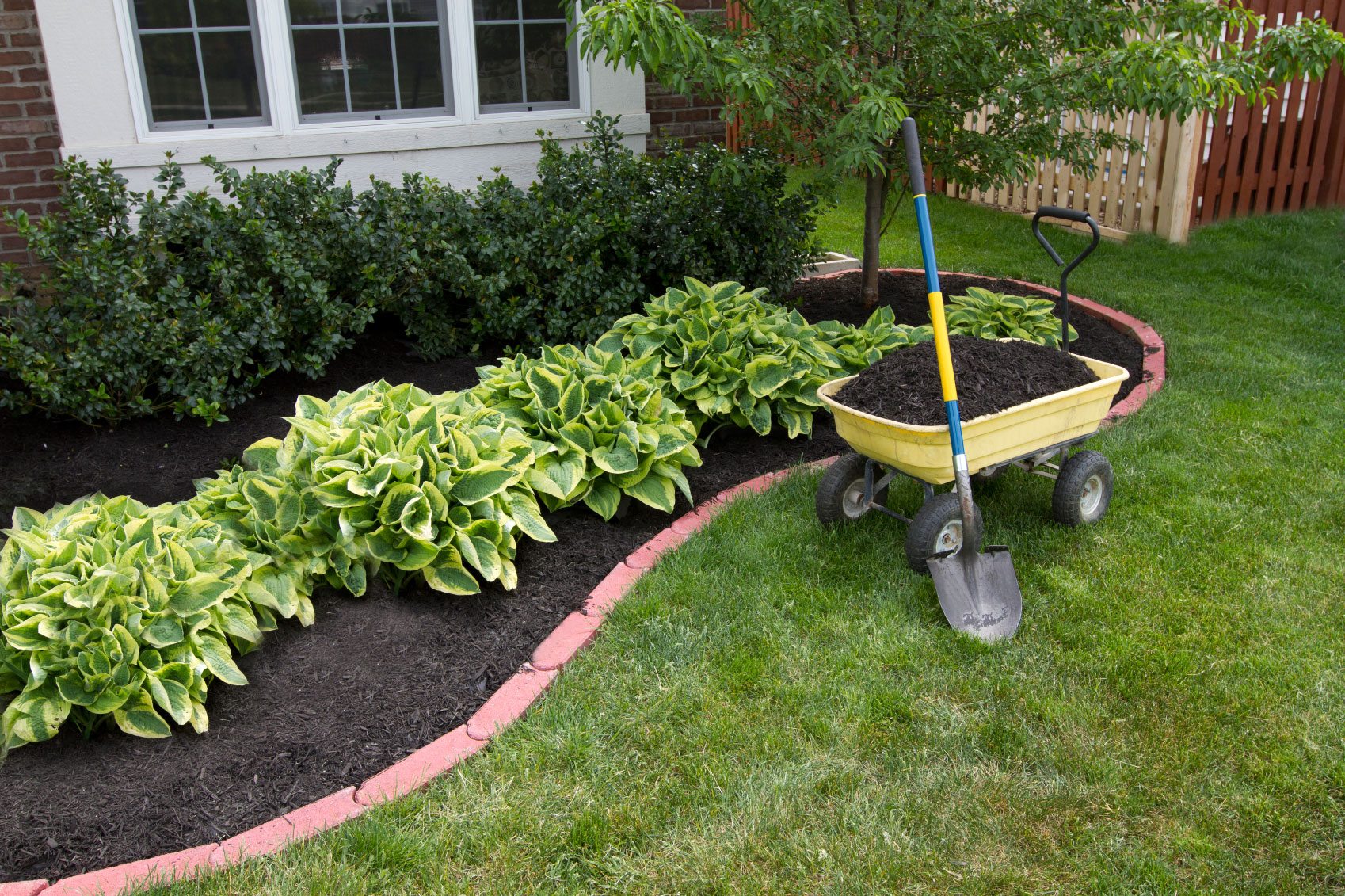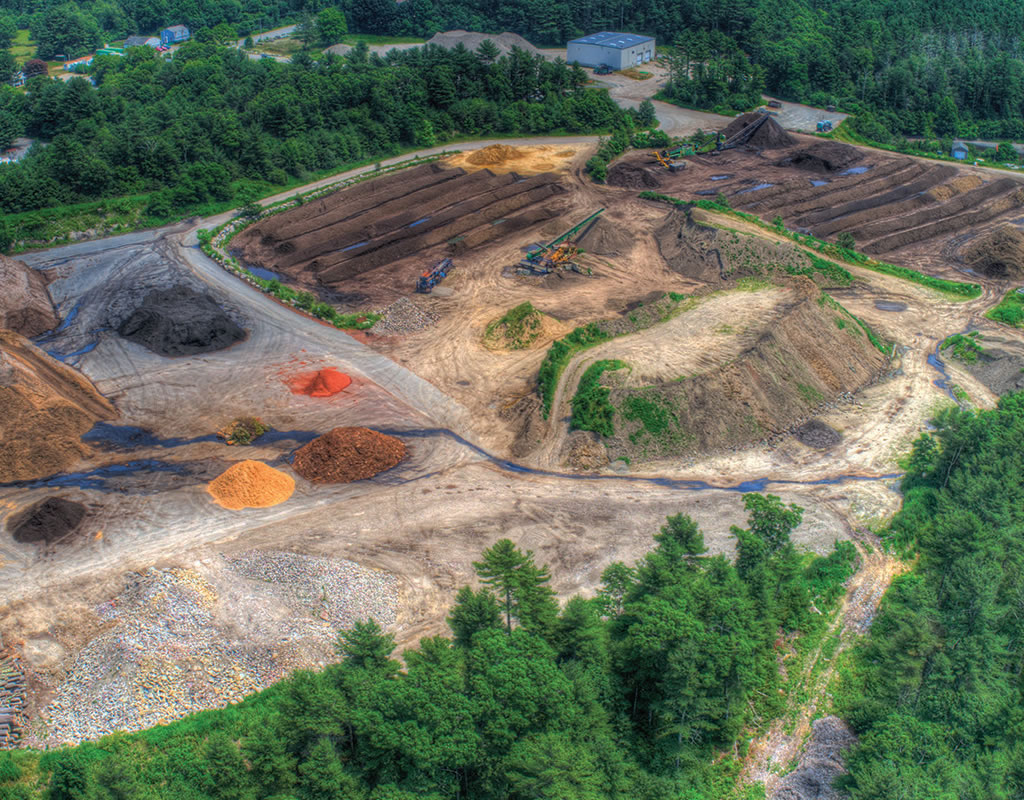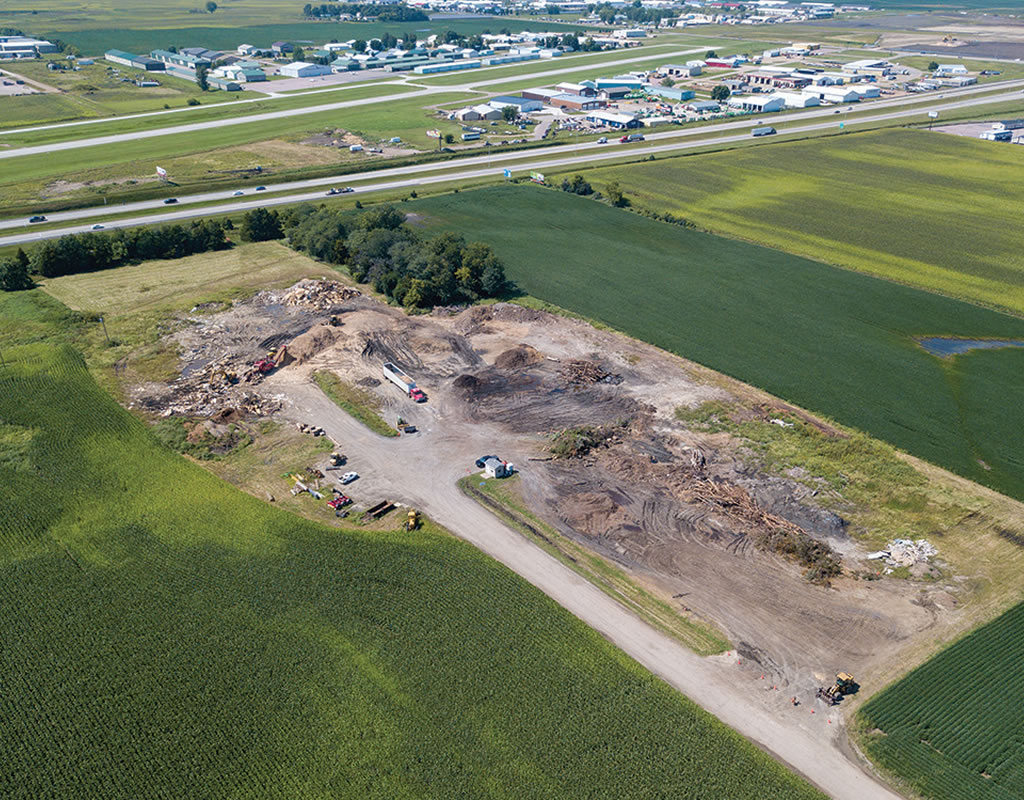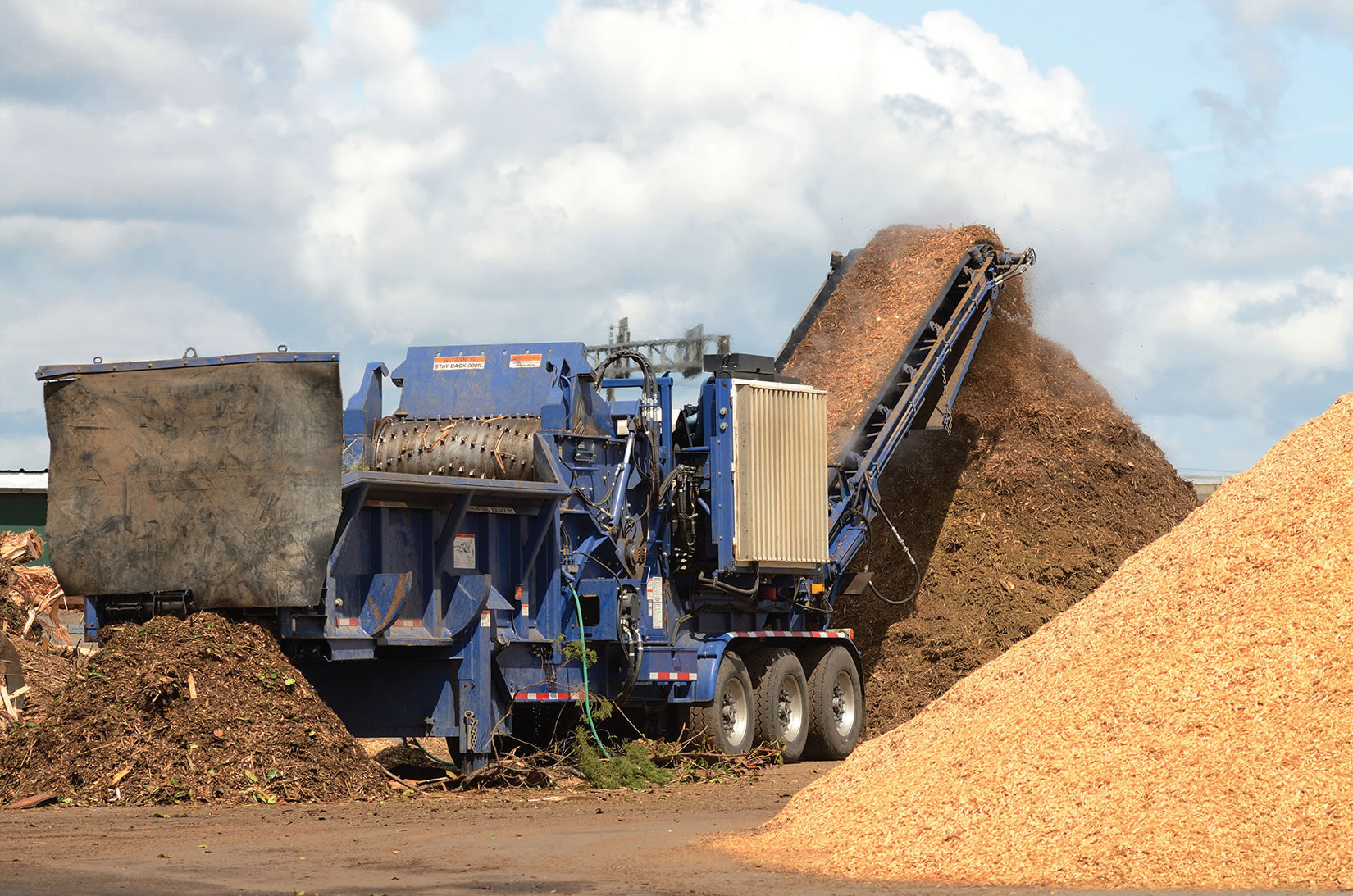By P.J. Heller
Mulch may be the not so secret ingredient when it comes to successful landscaping and plant growth.
For nearly 100 years, the benefits of mulch for various applications, such as agriculture and landscaping, have been studied and recognized.
While there are numerous types of mulch — including wood chips, stones, straw, cardboard and other paper-based trash, plastic and even carpet — their impact on soil and plant growth appears beyond doubt.
“It’s just an amazing element for any garden,” writes Jonathon Engels in Permaculture News. “Nothing else makes quite so much sense.”
Engels outlines some of the benefits:
“It drastically lessens the water needed for growing plants, cutting the quantity easily in half and often much better than that. It feeds our plants by breaking down into fertile composted materials right where it’s needed. It protects the soil life, helps to prevent erosion and stops the compacting effects of rain. In the winter, it’s warm, and in the summer, it wards off evaporation. Oh, yes, and it’s thwarting off weeds while doing all of this.”
A study by the International Society of Arboriculture compared the effects of wood chip mulch, compost, inorganic fertilizer, compost tea, a commercial biological product and ordinary water on soil quality and tree growth after five years in an urban setting designed to mimic a new development.
Robert Pavlis of Garden Myths summarized the findings: “After five years the total tree mass under wood chips was 170 percent greater than the control trees which received just water. The mass of trees receiving compost were 82 percent higher, and the ones receiving fertilizer were 69 percent higher, than controls. Both compost and fertilizer provided additional nutrients, and helped the trees grow. But neither worked as well as wood chips.”
Pavlis said the study confirmed that wood chip mulch is the best mulch for the garden.
“Over time it loosens compacted soil, adds organic matter, keeps moisture levels up and slowly adds nutrients to the soil,” he said. “Compost woks (sic) too, but it can add too many nutrients to soil. This problem is being seen by more and more organic gardeners who are experiencing very high nutrient levels, even to the point of becoming toxic. You can have too much organic matter.”
Study authors Bryant C. Scharenbroch and Gary W. Watson said “compost topdressings and wood chip mulches should be used as soil management techniques for trees growing in compacted urban soils. This research shows strong evidence that compost topdressings and wood chip mulches are effective and also cost-efficient methods for improving soil quality and stimulating tree growth in compacted urban landscape soils.”
Meantime, Engels praise of mulch echoes an earlier study on the Impact of Mulches on Landscape Plants and the Environment conducted at the Puyallup Research and Extension Center at Washington State University.
“Mulches provide aesthetic, economic and environmental benefits to urban landscapes,” reported Linda Chalker-Scott, associate professor of horticulture and extension specialist at the school. “Mulching is especially useful in the establishment of trees in landscapes that receive minimal care, such as restoration sites. In general, mulches improve soil health, creating healthy populations of plants and associated animals. These biodiverse, stable landscapes are more resistant to stress, are more aesthetically pleasing, require fewer applications of pesticides and fertilizers, and are ultimately more sustainable than those without mulch cover.”
What follows is a summary by the Center for Landscape and Urban Horticulture at the University of California Cooperative Extension of Chalker-Scott’s lengthy study.
— Improved soil moisture
Bare soil exposed to heat, wind, and compaction loses water through evaporation and is less able to absorb irrigation or rainfall. Using mulches, the soil has greater water retention, reduced evaporation, and reduced weeds. One study documented a 35 percent reduction in evaporation when a straw mulch was applied.
There is a wide variety of permeable mulching materials. Organic mulches conserve water more effectively and do not limit soil water infiltration and retention. An appropriate mulch can reduce the need for irrigation and in some landscapes can eliminate irrigation all together. Coarse organic mulches protect soil water reserves holding water for later release and prevent runoff. Mulch can also protect trees and shrubs from drought stress and cold injury.
— Reduced soil erosion and compaction
Mulches protect soils from wind, water, traffic induced erosion and compaction that directly contribute to root stress and poor plant health. Even adding a thin organic mulch will protect soils. For instance, using a straw mulch, fallen pine needles or wood chips can reduce erosion and overland flow. Using bark or jute on compacted urban soils restores soil aggregation and porosity. It is better to apply mulch before compaction occurs as it is difficult to reverse. Proactive mulching will protect soil integrity.
— Maintenance of optimal soil temperatures
Mulches have shown to lower soil temperatures in summer months. Extreme temperatures can kill fine plant roots which can cause stress and root rot. Mulches protect soils from extreme temperatures, either cold or hot. Coarse mulches are more temperature moderating and allow for better water and gas transfer than thick layers of finely textured mulches.
There is an effect of mulch type on surface temperature. Some mulches heat the soil as a function of solar radiation absorption more than bare soils. Increased surface temperature due to pine bark mulch has been shown to cause nearby leaves to lose more water.
— Increased soil nutrition
Organic mulches can increase, decrease or have no effect upon nutrient levels depending on mulch type, soil chemistry and particular nutrients of interest. Mulches with relatively high nitrogen content often result in higher yields, but low nitrogen mulches, such as straw, sawdust and bark, can also increase soil fertility and plant nutrition.
— Reduction of salt and pesticide contamination
In arid landscapes, evaporating water leaves behind salt crusts. Because mulches reduce evaporation, water is left in the soil and salts are diluted. Organic mulches can actively accelerate soil desalinization and help degrade pesticides and other contaminants. Plastic mulches cannot bind ions as organic mulches can and are not effective in this regard.
— Increased binding of heavy metals
Organic mulches can be effective in removing heavy metals from landscape and garden soils.
— Improved plant establishment and growth
Mulches are used to enhance the establishment of many woody and herbaceous species. Mulches improve seed germination and seed survival, enhance root establishment, transplant survival, and increase plant performance. Overall, mulches grow healthier landscape plants requiring less maintenance.
The improved water retention created by a mulch allows roots to extend and establish farther beyond the trunk compared to bare soil. Plants thus become more stabilized. Root development is greatest under organic mulches compared to plastic or bare soil. Sheet and film mulches encourage root growth on top of the mulch, injuring plants when removed. Plastic mulches can lead to increased mortality of transplanted material and cause extensive damage to fine root systems. Roots tend to grow into organic mulch layers, and it does not appear to injure the plant to have roots exploring a mulch layer.
— Reduction of disease
Mulches will reduce the splashing of rain or irrigation water, which can carry spores of disease organisms to stems and leaves of plants. Populations of beneficial microbes that reduce soil pathogens can be increased with mulches. Mulches can combat disease organisms directly as well.
Some plastic mulches can increase the incidence of disease by exacerbating already poor soil conditions, causing various types of rots.
— Reduction of weeds
Using mulches for weed control is highly effective. Mulches can reduce seed germination of many weed species and reduce light, which stresses existing weeds. Coarse materials are more effective than fine textured ones in reducing weeds.
— Reduced pesticide use
Mulches reduce weeds, plant stress, and susceptibility to pests and pathogens which translates to reduced use of herbicides, insecticides, and fungicides.
The study by Chalker-Scott also discussed real and perceived problems with mulch.
Among them was acidification, which she said scientific studies had disputed. However, she noted, “it’s likely that in artificial conditions, such as nursery pro- duction, that woody materials do have an acidifying effect when they are used as part of a potting medium.
She also said research indicated that there was no evidence that woody mulches caused a nutrient deficiency on plant materials. “To the contrary, many studies have demonstrated that woody mulch materials actually increase nutrient levels in soils and/or associated plant foliage,” she reported.
However, she noted it was not advisable to use high C:N mulches in annual beds or vegetable gardens where the plants did not have deep root systems.
Chalker-Scott also said there was no evidence that organic mulches were “pest magnets.”
“In fact, many of these wood-based mulches are not attractive to pest insects but are actually insect repellent,” she said.
Lyn Gannon, master gardener with the University of California Master Gardener Program in Sonoma County, calls mulch “a gardener’s best friend” and cites many of the benefits listed by Chalker-Scott.
“Overall, using mulch will begin an increasing cycle of growth and productivity in your garden,” Gannon says. “It will foster a vast number of plant partnerships, encouraging diversity in the soil and its environment. This, in turn, will create unique niches which support a growing web of life. In short, mulch improves soil fertility, the cornerstone of all healthy and thriving gardens.”
Related News
Subscribe Today
Every other month, Soil & Mulch Producer
News brings you important stories about:
• New Technology
• Products
• Industry News
• Research Studies
Soil & Mulch Producer News features articles and services relevant to your daily operations.











